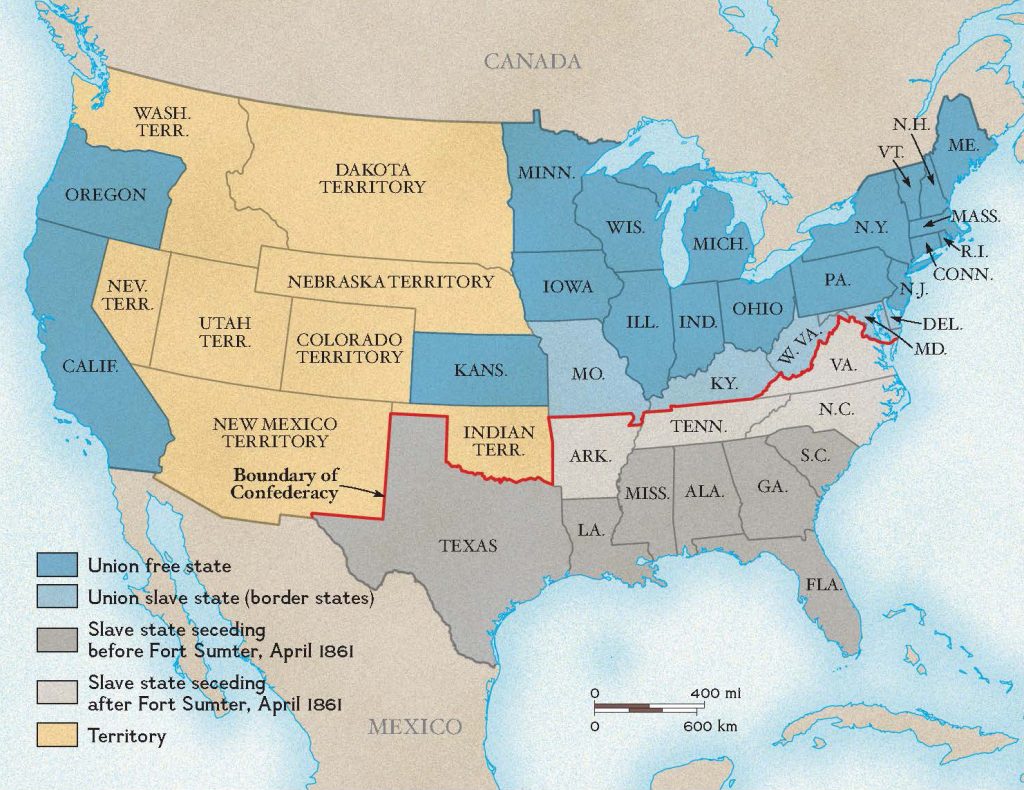Week 9
"The end of the Confederacy was pitiful. On April 1, 1865, Davis sent his wife Varina away from Richmond, giving her a small Colt and fifty rounds of ammunition. The next day he had to get out of Richmond himself. He went to Danville, to plan guerrilla warfare. By this point General Lee was already in communication with General Grant about a possible armistice, and had indeed privately used the word ‘surrender,’ but he continued to fight fiercely with his army, using it with his customary skills. He dismissed pressure from junior officers to negotiate, and as late as April 8 he took severe disciplinary action against three general officers who, in his opinion, were not fighting in earnest or had deserted their posts. But by the next morning Lee’s army was virtually surrounded. He dressed in his best uniform, wearing, unusually for him, a red silk sash and sword. Having heard the latest news of the position of his troops, and the Union forces, he said: ‘Then there is nothing left me but to go and see General Grant and I would rather die a thousand deaths.’129 The two generals met at Appomattox Court House, Grant dressed in ‘rough garb,’ spattered with mud. Both men were, in fact, carefully dressed for the occasion, as they wished to appear for posterity. The terms were easily agreed, Grant allowing that Southern officers could keep their sidearms and horses. Lee pointed out that, in the South, the enlisted men in the cavalry and artillery also owned their horses. Grant allowed those to be kept too. After Lee’s surrender on April 9, Davis hurried to Greensboro to rendezvous with General Johnston’s army. But in the meantime Johnston had reached an agreement with General Sherman which, in effect, dissolved the Confederacy. Davis gave the terms to his Cabinet, saying he wanted to reject them, but the Cabinet accepted them. Washington, however, did not, and the South had to be content, in the end, with a simple laying down of arms.130 By this time Lincoln was dead. He had summoned Grant to hear his account of the surrender at Appomattox, and he beamed with pleasure when the general told him that the terms had extended not just to the officers but to the men: ‘I told them to go back to their homes and their families and that they would not be molested, if they did nothing more.’ Lincoln expected Sherman to report a similar surrender and he told Grant he expected good news as he had just had one of his dreams which portended such. Grant said he described how ‘he seemed to be in some singular, indescribable vessel and…he was moving with great rapidity to an indefinite shore.’131 Lincoln told his wife (April 14), who said to him, ‘Dear husband, you almost startle me by your great cheerfulness,’ ‘And well may I feel so, Mary. I consider this day, the war has come to a close'."
Johnson, Paul. A History of the American People (pp. 494-495). HarperCollins.

